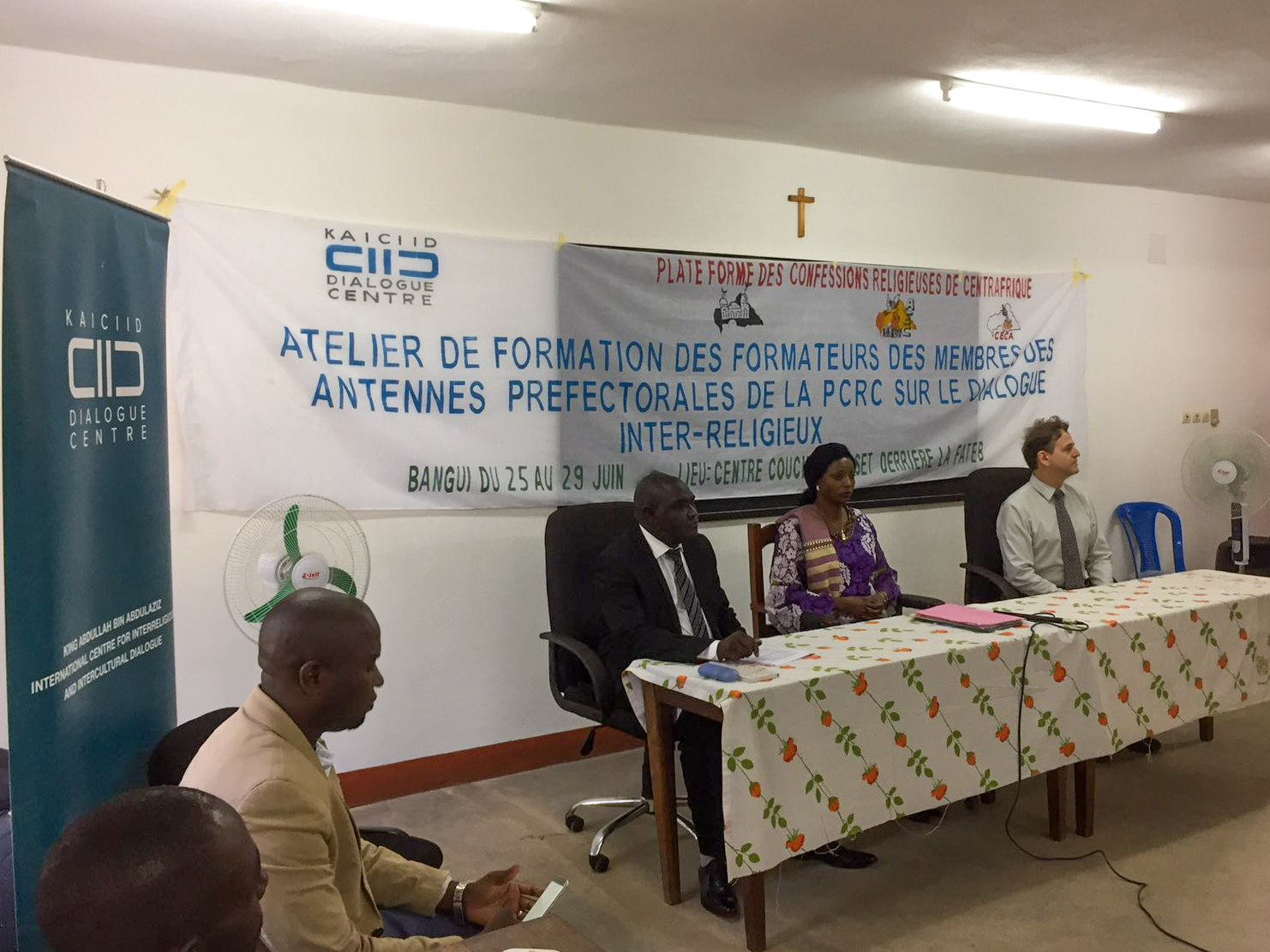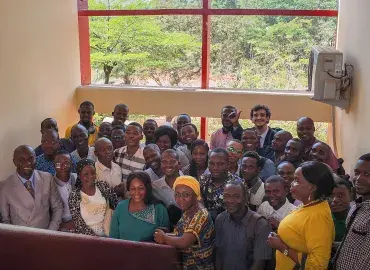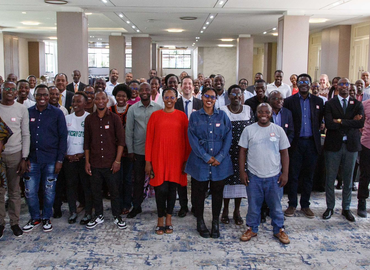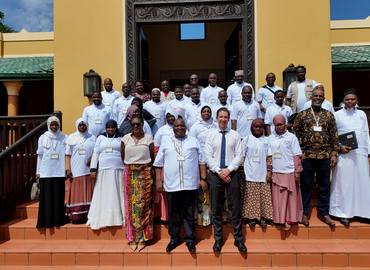Transforming Conflict Resolution in Central Africa Republic: KAICIID's Pioneering Initiative with Bangui University

In the heart of Central Africa, an innovative collaboration is unfolding between the International Dialogue Centre - KAICIID and the University of Bangui. This partnership is pioneering a unique approach to conflict resolution and peacebuilding, deeply rooted in interreligious dialogue (IRD). Their joint initiative, the IRD Hub Africa Programme, is set to revolutionize the way future leaders are trained in the art of peace-making in the Central African Republic (CAR).
In an ambitious move to reshape conflict resolution and peacebuilding efforts in Central Africa, the International Dialogue Centre - KAICIID has partnered with the University of Bangui to integrate an Interreligious Dialogue (IRD) module into the university's Conflict Resolution Master curriculum. This pilot program, part of KAICIID's broader Africa Programme, is a significant stride towards leveraging education and dialogue for sustainable peace in a region often marred by inter-ethnic and inter-religious conflicts.
Background: Since its inception, KAICIID has been actively involved in the Central African Republic (CAR), focusing on supporting the national inter-faith platform, Plateforme des Confessions Religieuses de Centrafrique (PCRC). Established in 2013, PCRC has been pivotal in engaging with the government, armed groups, and communities for social cohesion and conflict resolution. KAICIID's involvement has notably enhanced PCRC's capacity, making it a crucial force in promoting peace countrywide.
The Initiative: This initiative's core is the establishment of an Interreligious Dialogue (IRD) module within the Conflict Resolution Master curriculum at the University of Bangui. The program aims to empower Central African actors to influence the country's peace process positively, thereby fostering social cohesion. The collaboration with the University of Bangui aims to expand the scope and impact of IRD training in CAR. The comprehensive capacity-building program includes practical conflict resolution and mediation apprenticeship, enabling trainees to apply theoretical knowledge in facilitating local reconciliations. This hands-on approach allows students to apply theory in real-life scenarios, facilitating local reconciliations. The initiative's goal is to develop an IRD module for the university's conflict resolution curriculum and establish a robust conflict resolution and mediation apprenticeship program affiliated with the university.
Professor Patrice Brodeur, Senior Advisor; Program Department at KAICIID plays a pivotal role in this initiative, leading the delivery of IRD training to the university's professors. These trained educators will then adapt the KAICIID IRD material to suit the university's specific needs. The program also focuses on generating interest among key partners and establishing a case referral system for the apprenticeship, providing students practical experience in conflict resolution and mediation.
By close of 2024, the program aims to have the IRD module fully integrated into the university's curriculum, with new cohorts of students enrolling in the Master's course. KAICIID's role will evolve to support the apprenticeship program and ensure its practical components' effectiveness.
The final phase, projected for 2025, focuses on transitioning full ownership and management of the program to the University of Bangui. This phase might also explore expanding the project, potentially including a comprehensive course on interreligious and intercultural dialogue.
Impact and Synergy Creation: The project is not just about imparting knowledge; it is about creating a self-sustaining ecosystem of peacebuilding. Graduates will form an IRD clinic, producing knowledge material and mediating cases. This clinic aims to support various peacebuilding entities, including religious structures (PCRC), governmental bodies (Local Peace and Reconciliation Committees, LPRCs), and international peace efforts (MINUSCA).
Furthermore, the project aligns with and supports the peacebuilding architecture of CAR, including the Government's efforts in reconciliation and peacebuilding, conducted by the Ministry of Humanitarian Affairs and National Solidarity and Reconciliation (MHANSR). It will enhance the government's ability to demonstrate its effectiveness in maintaining the social contract, especially in a fragile context like CAR.
Implementation and Partnership: The project, developed by KAICIID Africa Team in partnership with KAICIID Fellows in CAR, is closely aligned with KAICIID’s multi-annual strategy 2023-2027 and demonstrates full ownership by local partners. Supported with the Ministry of Education in CAR, the University of Bangui is a prestigious institution with a rich history of contributing to the country's intellectual and political elite, plays a pivotal role in this initiative. The project aims to involve key stakeholders in the country, including UNESCO, MINUSCA, and the Ministry of Education, ensuring a collaborative approach essential for the program's success.
KAICIID's initiative with the University of Bangui is a groundbreaking step towards embedding IRD in academic curricula, fostering a new generation of peacebuilders equipped with the knowledge and skills to navigate and resolve conflicts. This program, transcending traditional peacebuilding approaches, holds the promise of a more peaceful and cohesive Central African society.
The collaboration between KAICIID and the University of Bangui represents a significant stride in peacebuilding efforts in the CAR. By nurturing a generation of professionals skilled in IRD and conflict resolution, this initiative not only contributes to the immediate needs of the CAR but also to the global effort of using education as a tool to overcome conflict and division.

As the Sustainable Development…



